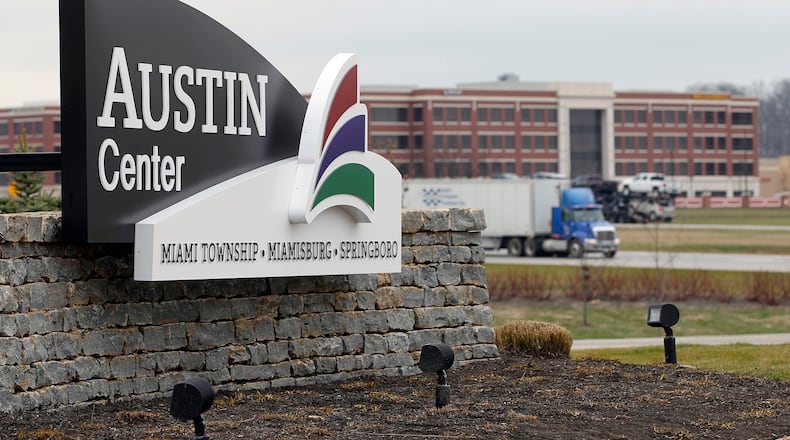By law, townships in Ohio cannot impose income taxes on land within their borders unless they have JEDD agreements with neighboring cities. The annual money helps to fund basic services and pay for others, said officials in Miamisburg and the township, the communities that receive the most funds.
POPULAR: $134M deal brings Austin Landing new ownership
“It’s a really big deal,” said Miamisburg City Manager Keith Johnson, whose city is adding about $365,000 to its 2019 revenue. “And we’re very happy about the agreements.”
Each JEDD board this year also established an economic development assistance program to either maintain or attract businesses to the districts. Next year, each JEDD has budgeted at least $40,000 for that program, records show.
The JEDD contracts the township has with the three cities include these areas: in and around the Austin Boulevard interchange at Interstate 75 (Austin Center); the Dayton Mall (Miami Crossing); and the Dayton-Wright Brothers Airport (Dayton).
This year, the Austin Center JEDD totaled about $1.35 million in revenues while the Miami Crossing district brought in about $929,700, township records show. The Dayton JEDD’s total revenue was about $488,700.
RELATED: Dayton, Miami Twp. to rework plan for economic district, DWB airport
Combined revenues for 2018 were about $2.3 million and for 2017 were about $2.1 million, according to the township. The totals reflect the number of jobs in and around the business and entertainment corridors of the Dayton Mall and Austin Landing, as well as the Dayton-owned airport.
The Austin Center JEDD includes Miamisburg and Springboro. The income tax rate is 2.25 percent with the township receiving about 57 percent, Miamisburg about 22 percent and Springboro about 20 percent.
The same income tax rate applies to businesses in the Miami Crossing district, which includes the township and Miamisburg. The township gets 70 percent of tax revenues and the city 30 percent.
The Dayton JEDD, which includes Dayton and the township, is taxed at 1.75 percent and the revenue is split 50/50 between the jurisdictions.
RELATED: FAA approves runway expansion plan at Dayton-Wright Brothers’ Airport
Revenues in recent years from all of the JEDDs have risen annually or maintained a steady rate, allowing communities more funds. This year, about $1,694,000 was given back to the local jurisdictions.
For Miami Twp., that was about $1.03 million, more than 5 percent of its budget. That helps stretch taxpayer dollars, said John Morris, vice president of the board of trustees.
“The income we receive from the JEDDs allows us to extend and expand the number of services we offer to our residents,” Morris said. That includes “leaf collection, additional road improvements that allow us to do things without having to impose additional levies.”
Johnson credits a good working relationship with the township for basically collecting a windfall for Miamisburg to pay for what’s needed: police officer salaries, paving more streets or funding swimming pool operations, among others.
“Those are revenues that free up other revenues to provide general services,” he said.
“It’s really a good deal for us. And as the JEDD grows – as both JEDDs grow – both the city and the township will benefit, (as will) the residents, because we’re providing services from the money that we’re collecting,” Johnson added. “And the township is doing the same thing.”
-MORE COVERAGE ON THIS ISSUE:
RELATED: Runway extension may not require realigning part of Austin Boulevard
MIAMI TWP. 2019 JEDD TAX REVENUE
Austin Center: $1,349,426
Miami Crossing: $929.773
Dayton: $488,728
Total: $2,767,927
SOURCE: Miami Twp.
About the Author

